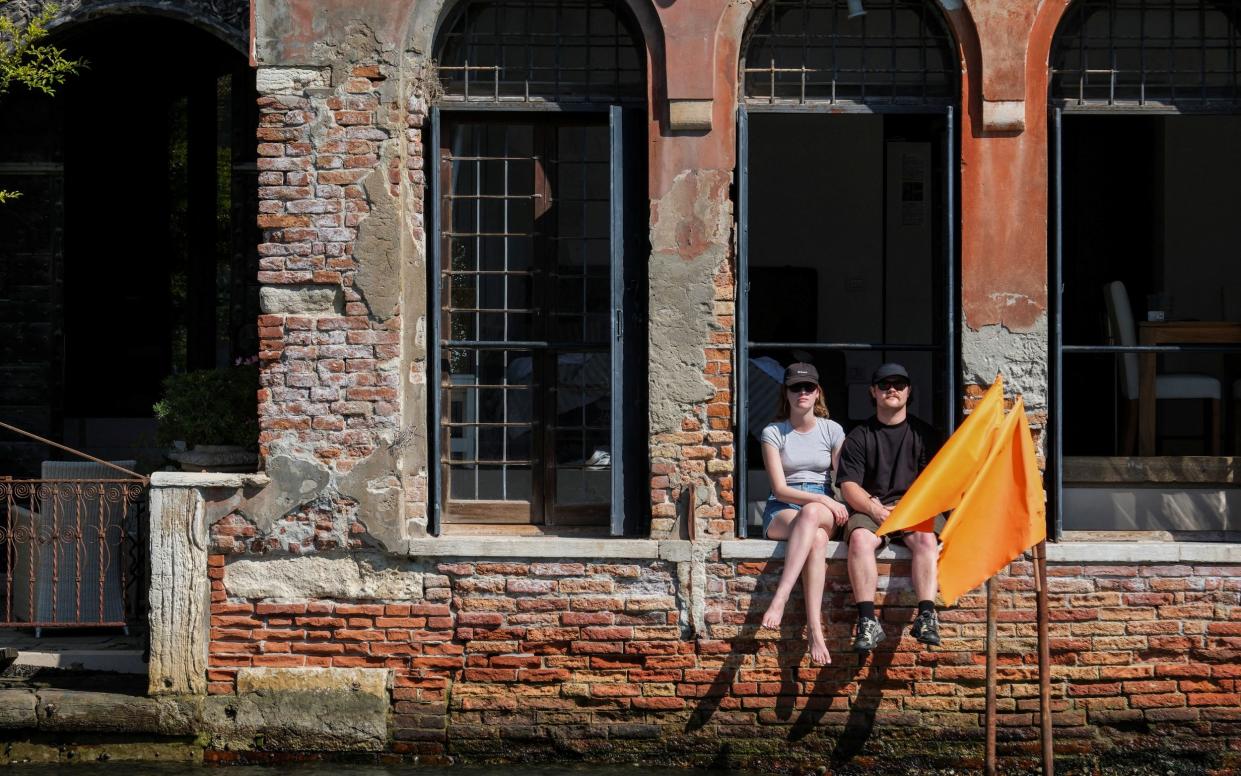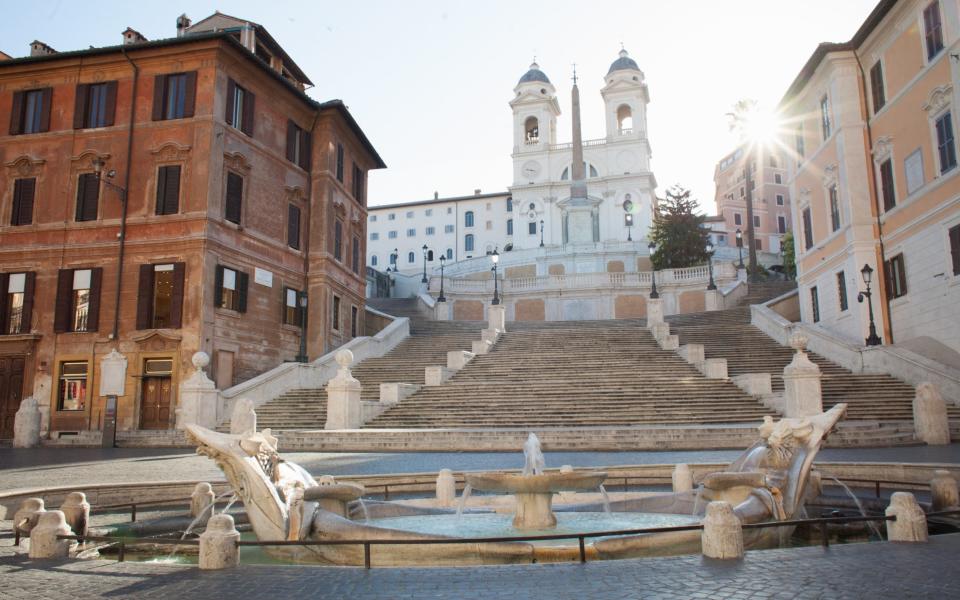The strangest rules waiting to catch out tourists this summer

Holidaymakers be warned: those venting their frustration at businesses in Thailand could find themselves on the wrong side of the law. A British man has been arrested in the country for allegedly bombarding a restaurant with one-star reviews, something that could contravene its strict anti-defamation rules. A similar incident was reported in Phuket in 2020 after an American tourist accused a hotel of “modern-day slavery” on TripAdvisor. Punishment, if found guilty, can extend to two years behind bars or a fine of up to 200,000 baht (£4,300).
Often, though, tourists are subject to slightly less serious laws (albeit ones that still come with penalties). Italy, for example, has no shortage of draconian regulations, many aimed at holidaymakers. Sporting types might fall foul in Lake Garda, where visitors have been warned of fines of up to €600 for a whole host of offences, including playing football “in such a way that bathers are disturbed”. “Inappropriate” clothing and “games that involve running, throwing objects, pushing or pulling things or people” are also prohibited in certain lakefront areas, according to reports.
Here’s where else holidaymakers might catch themselves under scrutiny this summer:
Avoiding selfies in Sri Lanka
Photography is something of an issue in Sri Lanka – in 2012, a trio of French tourists were given suspended jail terms for taking photographs with a statue of the Buddha, including one where they pretended to kiss the religious icon. Tourists are now advised to be particularly sensitive around such monuments, exercising caution about actions that might be perceived as offensive, such as turning their back to the image. There’s something similar in force in Spain, where trying to take a selfie during the running of the bulls – surely a fool’s errand – can lead to a fine reaching into the thousands.
No sitting or snacking in Italy
Visitors who attempt to sit on Rome’s Spanish Steps can be fined €250 (£213). This increases to €400 (£341) if the staircase is “damaged or dirtied”. The rule came in after the area was renovated by jewellers Bulgari in 2016. Hoteliers in the area decried it as “a bit much”, with Giuseppe Roscioli, the president of the Federalberghi association saying that “tourists should be allowed to rest a bit after walking around the city.” Evidently, they are not.

Other Italian spots are attempting to impose higher standards of civility among tourists. Venice, the poster child for overtourism, has introduced fines for people picnicking in its busy streets (in addition to entry fees). In 2018, a teenage tourist threw herself from a vaporetto to avoid a ticket inspector – and was promptly fined for entering the water, which is similarly banned. The following year, a pair of backpackers were expelled from the city for brewing up a canalside coffee.
It’s snacking that can get tourists in trouble in Capri, too, where a €500 (£425) fine applies if caught using disposable plates, cups or cutlery on the holiday isle. Head back to the mainland, and walking around Sorrento in a bikini (or topless) can result in a similar fine, in an attempt to curb what a local mayor described as behaviour “contrary to decorum”. And regardless of what you’re wearing, taking a selfie in Portofino could land tourists with a £242 fine. It’s to stop “lingering” in the fishing village, which is now more popular with influencers than seafood aficionados.
Ditch the sunbeds
Holidaymakers in Greece might be short of provisions this summer. Authorities in the country have warned that the number of sunbeds in crowded spots could be substantially reduced, with fleets of drones enforcing the new ruling throughout the year. A new bill would require 70 per cent of beaches to be sunbed-free, especially in ecologically sensitive regions. For those that do keep the loungers, they must be four metres away from the shoreline. Fines will be levied against businesses that refuse to comply.
Curb the vaping
Keeping up with so many rules is exhausting. Perhaps you’d like to take the edge off a bit with a vape. But be warned: vaping in the Vatican City (or any number of larger countries, including Australia, Mexico or Brazil) could get you in trouble. In Singapore, the fine for the possession or use of “imitation tobacco products” can reach $2,000 (£1,200). The law is even stricter in Thailand, where holidaymakers can be fined 30,000 baht (£700) for vaping in public, or face up to 10 years in prison. Disposable vapes will soon be banned in the UK, although the law is yet to come into effect.
Use the toilets in Spain
What about Spain, the UK’s favourite overseas holiday destination? At the most popular Balearic beaches, like Playa de Talamanca in Ibiza, any kind of smoking can incur a €30 fine. And don’t even think about relieving yourself in the sea in Galicia, as it could set you back £645 (quite how you will get caught in the act remains to be seen). Such rules exist against a backdrop of Spain attempting to encourage a more genteel kind of tourist. Regardless, you shouldn’t believe everything you read online: recent reports suggested that tourists in Benidorm are unable to swim in the sea between midnight and 7am. In a statement to Telegraph Travel, officials in the city quashed this claim entirely.

Remove your headphones
You might feel virtuous for choosing to cycle around the Costas instead of hiring a car. Alas, things are not that simple. Pop in your earphones to listen to flamenco while you dash along the coastline and a fine of €200 could be coming your way. The practice carries the hefty penalty over fears cyclists enjoying their tunes might be less aware of their surroundings, though no similar law exists to prevent drivers listening to their music at top volume. It’s the same in France, which enforces a €135 penalty for the practice. In Portugal and Italy, cyclists can ride with one earphone in, but two is also a no-no.
Learn the highway code
If you favour city breaks over beach holidays, it’s driving that can cause the most stress – and the diversity of rules can be rather hard to follow overseas. Eating behind the wheel in Cyprus, for example, can set drivers back £85. In Germany, stopping on the Autobahn for any reason, even if you run out of fuel, is a fineable offence. But it’s France that requires the most preparation: drivers need to carry a whole host of breakdown-specific equipment, including a warning triangle and high-visibility vests for every passenger. Breathalysers are no longer mandatory (as they were until 2020), but are still advised by motoring groups. Hire car firms should have you covered, but take your own car across the Channel and it’s another matter.
No petting in the New Forest
Of course, Britain isn’t exempt. The New Forest introduced rules last summer that ban visitors stroking wild ponies, as it is thought both detrimental to the animals and dangerous for humans. Those in breach of the Public Space Protection Order can be fined up to £1,000, although officials have promised to be “proportional”. Similar rules in Tenerife have banned the feeding of stray animals, with “serious incidents” leading to fines of €3,000 (£2,600).
Watch your language Down Under
Whatever happens, don’t vocalise your frustration at such rules – at least not too strongly. Using “foul language” in New South Wales and Western Australia is punishable by fines of £350 and £260 respectively. It’s even worse in South Australia, where you could find yourself behind bars for three months. Travellers, beware.
This story was first published in July 2023 and has been revised and updated.


